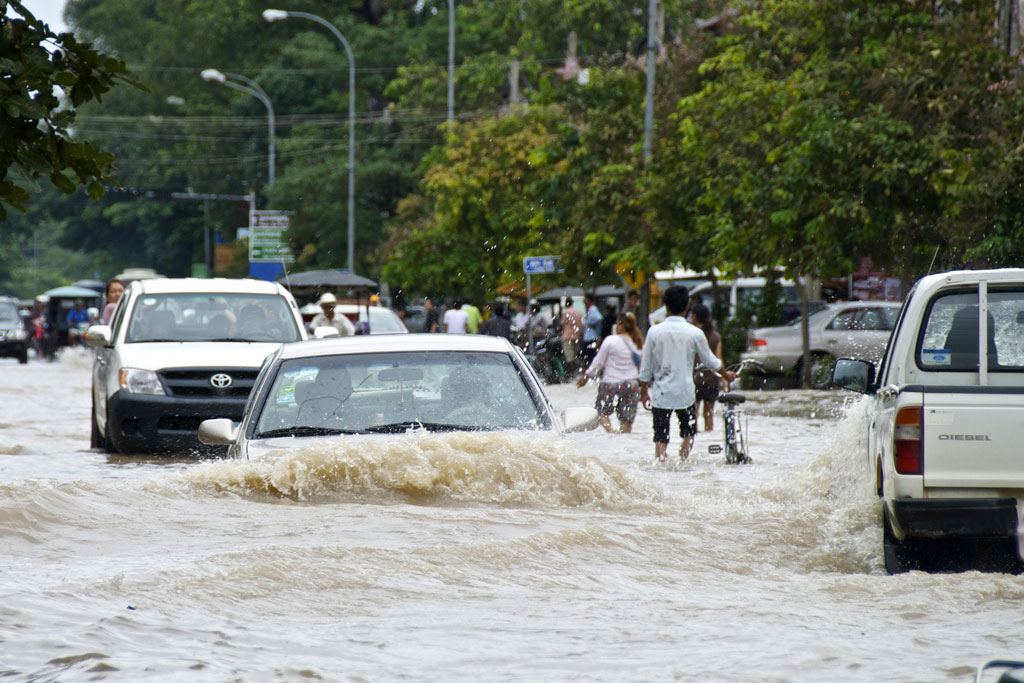Cambodia: UN stepping up emergency response to severe floods
Cambodia: UN stepping up emergency response to severe floods
4 November 2011
The United Nations reported today that it is increasing its joint efforts with Cambodian authorities and aid providers to offer food assistance to some of the thousands of people that have been displaced by severe flooding recently.
 Millions of people have been affected by floods ravaging many countries in Asia
Millions of people have been affected by floods ravaging many countries in Asia
Some 240,000 people have been displaced by heavy rains and according to the World Food Programme (WFP), 10 per cent of the rice crops have been destroyed and 265,000 hectares of rice fields have bee damaged, raising the price of rice by 12 per cent.
“Cambodia’s worst floods in more than a decade have forced people from their homes and destroyed their crops,” said WFP’s country director in Cambodia, Jean-Pierre de Margerie, in a statement released by the agency.
“Now, with the price of rice on the rise, the poorest households face the prospect of not having enough to eat. Food support is needed now, and will be needed in the months ahead, as people recover from this disaster.”
To mitigate the impact of the floods, the WFP launched an emergency operation in collaboration with the Government and the non-governmental organization (NGO) partners, which consists of distributing 50 kg of rice to each family, and aims to reach some 60,000 people.
The WFP is also working with Cambodian authorities to assess the number of people that need food assistance, how long they will need it for, and the time it will take them to recover.
During a news briefing in Geneva, spokesperson for the WFP Gaelle Sévenier said a one year plan to help the 150,000 most vulnerable victims would also be put in place, and added that the WFP had already received $2.5 million for emergency funding for operations in the country, with $1.5 million more to come.
###
> United Nations (UN).
 The United Nations was established on 24 October 1945 by 51 countries committed to preserving peace through international cooperation and collective security. Today, nearly every nation in the world belongs to the UN: membership totals 192 countries.
The United Nations was established on 24 October 1945 by 51 countries committed to preserving peace through international cooperation and collective security. Today, nearly every nation in the world belongs to the UN: membership totals 192 countries.
When States become Members of the United Nations, they agree to accept the obligations of the UN Charter, an international treaty that sets out basic principles of international relations. According to the Charter, the UN has four purposes:
- to maintain international peace and security;
- to develop friendly relations among nations;
- to cooperate in solving international problems and in promoting respect for human rights;
- and to be a centre for harmonizing the actions of nations.
###
* The above story is adapted from materials provided by United Nations (UN)
** More information at United Nations (UN)



















